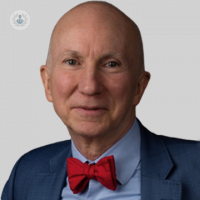Occupational stress: A guide
Written by:In his latest online article, Dr George Fieldman gives us his insights into occupational stress. He talks about what it is, the symptoms, causes, how it affects people in different ways and treatment.

What is occupational stress?
Occupational stress arises when individuals experience heightened anxiety or depression in their work environment. This can stem from personal factors they bring into the situation or be triggered by aspects of the work setting itself, such as bullying, disempowerment, excessive work schedules, isolation, or navigating a politically charged atmosphere where individuals feel compelled to adjust their communication based on others' preferences.
In my previous research with PhD students, we identified the social environment as a crucial factor contributing to occupational stress. For instance, one study revealed that individuals working with two bosses of the same sex and status on separate days exhibited significantly higher stress levels when dealing with a negatively perceived boss. This stress was evident in systematic elevations of both systolic and diastolic blood pressure, measured ambulatorily throughout the day. The impact of such chronic stress responses could lead to adverse long-term health consequences for individuals.
What are the symptoms of occupational stress?
Typically, individuals may experience anxiety in a workplace due to a perceived threat, and often, depression can accompany this feeling. The interplay between anxiety and depression is common, where anxious individuals may also exhibit signs of depression, and vice versa. This approach, known as a transdiagnostic approach, provides a valuable perspective in understanding these emotional states. Notably, research suggests that stress tends to escalate with the size of an organisation, revealing an intriguing correlation. The intricate reasons behind this phenomenon warrant further exploration. It's worth noting the intriguing observation that smaller organisations seem to offer a more favourable environment for individuals in managing these emotional challenges.
What can cause occupational distress?
Excessive workloads can significantly contribute to occupational distress among individuals. Additionally, having an unsupportive boss who communicates in a condescending manner—what I refer to as the "smile-up, spit-down" theory of management—can create a detrimental work environment. These factors, among others, have the potential to induce stress among employees in the workplace.
Does occupational stress affect people in different ways?
If someone experiences social anxiety and the work environment presents numerous social challenges, navigating those situations is likely to be more demanding. While exposure to such challenges can lead to habituation over time, fostering increased comfort, it's crucial to note that enduring persecution at work poses a significant obstacle. My advice is generally centered on not tolerating persecution. While striving to excel in your role and taking full personal responsibility are important, accepting mistreatment or condescension is not advisable. It's essential to maintain personal boundaries and prioritise a respectful and supportive work environment.
How is occupational stress treated?
Often, it becomes crucial to assist individuals in cultivating assertiveness, especially when they stand on solid and truthful grounds. Life frequently demands assertiveness, influencing both positive and negative outcomes. To navigate this effectively, it's essential to ensure the robustness of one's position, seeking input from friends, family, or a psychologist.
In the workplace, clarity regarding what is reasonable and acceptable is paramount. Steeper occupational hierarchies pose challenges to assertiveness, while flatter organisational structures provide a more conducive environment for being assertive.
If these strategies prove ineffective, it may be necessary to consider seeking alternative employment in a more respectful work culture. Challenging steep occupational hierarchies can be particularly challenging, as dissent is often met with resistance and leverage from those higher up in the hierarchy. Ultimately, finding the right balance involves a combination of assertiveness and strategic job seeking.
Dr George Fieldman is an esteemed chartered psychologist. You can schedule an appointment with Dr Fieldman on his Top Doctors profile.


